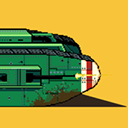Smarty的缓存操作技巧
时间:2010-07-28 来源:yishijinye
使用cache_lefetime指定缓存生存时间,单位为秒
要对相同页面生成多个不同的缓存,在display或fetch中加入第二参数cache_id,如$smarty->display('index.tpl',$my_cache_id);此特性可用于对不同的$_GET进行不同的缓存 二、清除缓存
clear_all_cache();//清除所有缓存
clear_cache('index.tpl');//清除index.tpl的缓存
clear_cache('index.tpl',cache_id);//清除指定id的缓存
三、使用自定义缓存方式
设置cache_handler_func使用自定义的函数处理缓存
如:
$smarty->cache_handler_func = "myCache";
function myCache($action, &$smarty_obj, &$cache_content, $tpl_file=null, $cache_id=null, $compile_id=null){
}
该函数的一般是根椐$action来判断缓存当前操作:
switch($action){
case "read"://读取缓存内容
case "write"://写入缓存
case "clear"://清空
}
一般使用md5($tpl_file.$cache_id.$compile_id)作为唯一的cache_id
如果需要,可使用gzcompress和gzuncompress来压缩和解压 四、局部关闭缓存
要在某些区域使缓存失效(只对需要的缓存),有几种方法:
inser:
定义一个inser标签要使用的处理函数,函数名格式为:insert_xx(array $params, object &$smarty)其中的xx是insert的name,也就是说,如果你定义的函数为insert_abc,则模板中使用方法为{insert name='abc'}
参数通过$params传入
也可以做成insert插件,文件名命名为:insert.xx.php,函数命名为:smarty_insert_aa($params,&$smarty),xx定义同上
register_block:
定义一个block:smarty_block_name($params,$content, &$smarty){return $content;} //name表示区域名
注册block:$smarty->register_block('name', 'smarty_block_name', false); //第三参数false表示该区域不被缓存
模板写法:{name}内容{/name} 写成block插件:
1)定义一件插件函数:block.cacheless.php,放在smarty的plugins目录
block.cacheless.php的内容如下:
<?php
function smarty_block_cacheless($param, $content, &$smarty) {
return $content;
}
?>
2) 编写程序及模板
示例程序:testCacheLess.php
<?php
include('Smarty.class.php');
$smarty = new Smarty;
$smarty->caching=true;
$smarty->cache_lifetime = 6;
$smarty->display('cache.tpl');
?>
所用的模板:cache.tpl
已经缓存的:{$smarty.now}<br>
{cacheless}
没有缓存的:{$smarty.now}
{/cacheless}
php清除所有缓存与根据ID清楚缓存例子
程序例子
<?php
require_once("smarty_inc.php");
//传入一个id
$id=$_GET['id'];
$values=array(
'a'=>"php",
'b'=>'JAVA',
'c'=>'c++'
);
//这里是清楚所有的缓存,用关键字:clear_all_cache()
$smarty->clear_all_cache();
$smarty->assign("title",$values);
//给模板中的ID进行赋值
$smarty->assign("id",$id);
//根据id调用模板
$smarty->display("index3.tpl.html",$id);
//这里是根据ID 删除缓存
$smarty->clear_cache("index3.tpl.html",$id);
?>
模板例子:
{foreach from=$title item=v key=j }
{$j}--{$v}<br>
{/foreach}
{$id}
不断补充中
转:ecshop缓存清理
ECSHOP的缓存存放在templates/caches/文章夹下,时间长了这个文件夹就会非常庞大,拖慢网站速度。还有很多情况我们不需要他的缓存。本文介绍禁用ECSHOP缓存的方法。
ECSHOP的缓存有两部分,一部分是SMARTY的页面缓存;另一部分是SQL查询结果的缓存。这两部分都是保存在templates/caches/文件夹下。只要我们分别关闭这两个功能,就可以完全禁用ECSHOP的缓存。当然你也可以根据自己的需要关闭其中某一个。
1.关闭SMARTY的缓存:
打开includes/cls_template.php,找到下面一段
if (file_put_contents($this->cache_dir . ‘/’ . $cachename . ‘.php’, ‘<?php exit;?>’ . $data . $out) === false)
{
trigger_error(’can\’t write:’ . $this->cache_dir . ‘/’ . $cachename . ‘.php’);
}
将这一部分注释掉即可,改成
/*
if (file_put_contents($this->cache_dir . ‘/’ . $cachename . ‘.php’, ‘<?php exit;?>’ . $data . $out) === false)
{
trigger_error(’can\’t write:’ . $this->cache_dir . ‘/’ . $cachename . ‘.php’);
}
*/
2.关闭SQL查询结果缓存
打开includes/cls_mysql.php
找到
var $max_cache_time=3600;//最大的缓存时间,以秒为单位
改为
var $max_cache_time=0;//最大的缓存时间,以秒为单位










